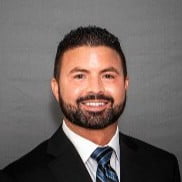

Norco addiction has quietly become one of the most devastating prescription drug problems in America. Often prescribed for pain, Norco—also known on the street as Vikes, Tabs, Watsons, or Hydros—contains a powerful combination of hydrocodone and acetaminophen. While it might seem harmless when taken as prescribed, misuse can quickly spiral into a life-threatening addiction.
According to the CDC, nearly 45 people die every day in the United States from prescription opioid overdoses, including drugs like Norco. Even more alarming, an estimated 3.6 million Americans report misusing prescription pain relievers each year. Norco abuse treatment is now one of the most common forms of help sought at detox and rehabilitation centers across the country.
People often begin using Norco after surgery or injury. But over time, tolerance builds—meaning you need more of the drug to feel the same relief. What begins as pain management can rapidly turn into dependency, where the body and brain rely on the drug to function normally.
If you or someone you love is struggling, you’re not alone—and there is hope for recovery.
What Is Norco and Why Is It So Addictive?
Norco is a prescription painkiller that combines hydrocodone, an opioid, with acetaminophen, the active ingredient in Tylenol. Hydrocodone changes how your brain responds to pain while also creating feelings of euphoria and relaxation. That “high” feeling is what makes Norco highly addictive, even for those who started with a legitimate prescription.
The danger lies in the brain’s reward system. Each dose triggers dopamine release, reinforcing the behavior and making it harder to stop. Over time, natural dopamine production slows down, causing anxiety, depression, and fatigue when you’re not using the drug. This chemical imbalance is what traps so many people in the cycle of addiction.
Even worse, when taken in high doses, the acetaminophen in Norco can cause severe liver damage—especially when mixed with alcohol. Many users don’t realize how toxic this combination can be until it’s too late.
Signs and Symptoms of Norco Addiction
Recognizing the signs of Norco addiction early can save a life. Because it’s a prescription drug, people often hide behind the idea that “my doctor gave it to me, so it’s safe.” But addiction doesn’t discriminate—it affects anyone who uses Norco long enough.
Common physical symptoms include:
- Drowsiness or excessive sleepiness
- Pinpoint pupils
- Slowed breathing or heart rate
- Nausea and vomiting
- Constipation
- Itchy skin
- Muscle weakness
Behavioral signs include:
- Visiting multiple doctors to get more prescriptions (“doctor shopping”)
- Running out of pills early or lying about lost prescriptions
- Withdrawing from friends or family
- Loss of interest in hobbies or work
- Mood swings, anxiety, or irritability
When withdrawal symptoms—like sweating, shaking, or restlessness—appear between doses, dependence has likely set in. At this stage, stopping cold turkey can be dangerous without medical supervision.
The Dangers and Long-Term Effects of Norco Abuse
Long-term Norco abuse can destroy both body and mind. The combination of hydrocodone and acetaminophen can lead to:
- Liver failure: High doses of acetaminophen damage the liver beyond repair.
- Respiratory depression: Slowed breathing can cause brain damage or death.
- Cognitive decline: Memory loss, confusion, and poor decision-making.
- Depression and anxiety: Mental health worsens as brain chemistry shifts.
- Overdose: Taking too much hydrocodone suppresses breathing, often fatally.
According to the National Institute on Drug Abuse (NIDA), more than 10 million Americans misuse prescription opioids each year, and nearly 17,000 deaths in 2021 were linked to prescription opioids like Norco.
What starts as a way to relieve pain often ends in physical dependence and emotional suffering. Many people describe feeling trapped—using Norco not to get high but simply to avoid feeling sick.
But the truth is: recovery is possible, and thousands of people reclaim their lives every year through professional treatment and peer support.
Norco Abuse Treatment and the Path to Recovery
Breaking free from Norco addiction requires more than just willpower—it takes structured, compassionate care. The first step is medical detox, where trained professionals help you safely taper off the drug and manage withdrawal symptoms such as nausea, anxiety, muscle pain, and insomnia.
From there, rehabilitation programs help you rebuild your life. Norco abuse treatment typically includes:
- Detoxification: A medically supervised process that ensures safety during withdrawal.
- Inpatient or outpatient rehab: Structured therapy programs tailored to each person’s needs.
- Behavioral therapies: Cognitive Behavioral Therapy (CBT), Dialectical Behavior Therapy (DBT), and group counseling help address the root causes of addiction.
- Medication-assisted treatment (MAT): Drugs like buprenorphine or naltrexone can reduce cravings and lower relapse risk.
- Aftercare and support groups: 12-step programs, sober living homes, and ongoing therapy provide long-term stability.
Recovery is not a one-time event—it’s a lifelong journey. Many people find strength and community through shared stories of healing.
True Stories of Addiction: Finding Hope After Norco
Vicki lost her parents to drugs as a child. Her sense of loss was a void that needed to be filled by drugs. From alcohol to heroin within a short amount of time, her life became a mess. Find out what happened in order for her to seek help! She is now living a happy, sober new life.
These stories remind us that recovery is real. People just like you have faced the darkness of addiction and come out stronger, happier, and more fulfilled. Watching others rebuild their lives can be the spark of hope that starts your own journey to freedom.
If you or someone you love is struggling with Norco addiction, take that first step. Healing begins with reaching out.
Get Help for Norco Addiction Today
Addiction doesn’t have to define you. Whether you’re seeking detox, residential care, or outpatient Norco abuse treatment, professional help is available right now. The longer you wait, the harder it becomes to break free—but recovery is possible with the right support system.
You deserve a life free from dependency and pain. Take action today—search our directory for treatment options near you or call our confidential hotline at (866) 578-7471. Compassionate professionals are standing by 24/7 to help you find the care and hope you deserve.








